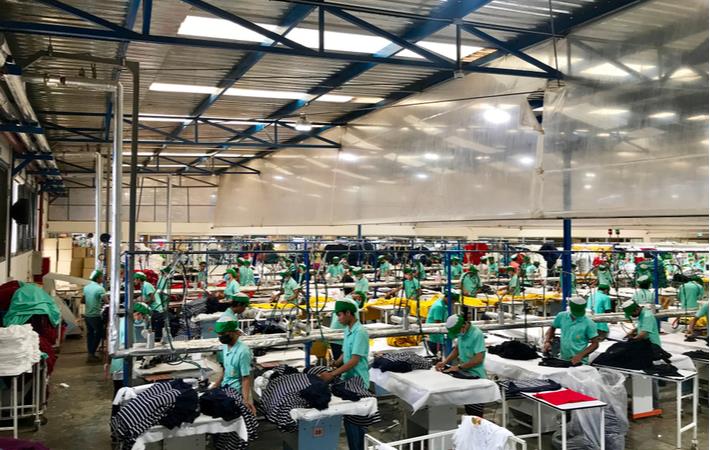Cambodia should consider developing industry transformation maps in key sectors to enable the transition to the Fourth Industrial Revolution (4IR) with adequate investment in skills development for new and repositioned jobs, according to a new study by the Asian Development Bank (ADB). The study examines the garment and tourism industries in the country.
It is part of a study of four ASEAN nations, including Indonesia, the Philippines and Vietnam.Cambodia should consider developing industry transformation maps in key sectors to enable the transition to the Fourth Industrial Revolution (4IR) with adequate investment in skills development for new and repositioned jobs, according to a new study by the Asian Development Bank (ADB). The study examines the garment and tourism industries in the country.#
The study, titled ‘Reaping the Benefits of Industry 4.0 Through Skills Development in Cambodia’, offers six key recommendations.
It found that 4IR technologies will eliminate jobs in the garments and tourism industries, but these would be offset by increase in demand arising from higher productivity, potentially generating net job increases of 39 per cent and 2 per cent respectively, ADB said in a press release.
While the government and industry are keen to promote 4IR skills, employer surveys in the two industries reveal limited understanding of 4IR technologies. For example, only 28 per cent and 35 per cent of garment manufacturing and tourism employers surveyed respectively agreed or strongly agreed when asked whether they have a good understanding of 4IR technologies and their relevance to their companies.
Employers in Cambodia display a much lower understanding of 4IR than those surveyed in Indonesia, the Philippines and Vietnam.
Despite the overall positive net employment effect in both industries, the study cautions there is no guarantee that displaced workers can seamlessly move into newly-created jobs without adequate and timely investments in skills development. Job displacement is also more likely to impact women which make up around 81 pert cent of Cambodia’s garment manufacturing industry.
“While 4IR could be transformative for jobs and skills in Cambodia, we must address the potentially disproportionate impact on women,” said ADB country director for Cambodia Sunniya Durrani-Jamal.
“We must improve knowledge of 4IR technologies and their benefits, support enterprises including small and medium enterprises to adopt advanced technologies, and offer support for retraining and reskilling programs including through tax incentives to ensure that no one is left behind,” she added.
The study calls for new approaches to strengthen inclusion and social protection for entry-level workers, those at risk of job displacement, and those who need upskilling.
It urges Cambodia to develop technical and vocational education and training programs with dedicated 4IR credentials in garment manufacturing and tourism, and flexible and modular skills certification programs that recognize skills attainment outside traditional education channels.
The study also calls for implementing incentive schemes for firms to train their employees in 4IR, which could be led by the Cambodia Skills Development Fund. In tourism, policymakers are urged to leverage growth of smartphone application developers to build 4IR readiness, ensure training in communication and social skills, and foster stronger coordination between training institutions and employers.
Ninety per cent pf employers surveyed in garment manufacturing reported that graduates hired in the past year were not adequately prepared for entry-level positions. This contrasts with the perception of training institutions, almost 60 per cent of which stated graduates were adequately prepared.
Fibre2Fashion News Desk (DS)
